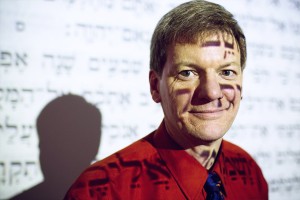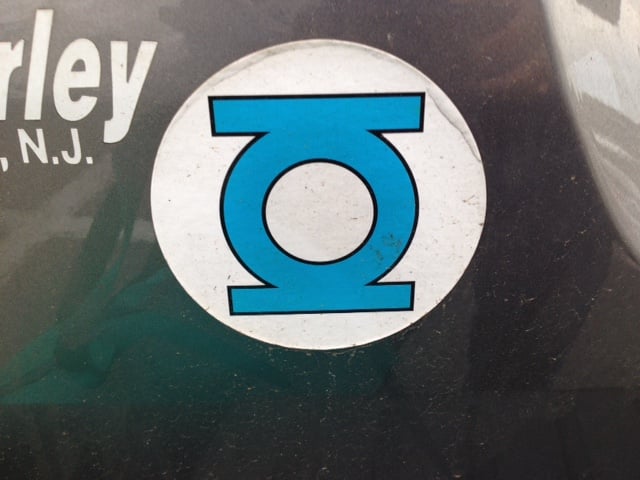(Once upon a time, I went to seminary. I had awesome professor by the name of Jack Collins, smart, educated, faithful and a theological badass. Jack also wrote a book called Science and Faith; Friend or Foes, an amazing book that I reread on a regular basis. He’s also a bit of smart alec, which is why he was, hands down, my favorite professor in seminary. As scientist and evangelical scholar, he is able to give a good, reasoned and passionate point of view on this whole evolution/creation controversy. This is what he had to say about the upcoming HamOnNye Debate)
1) Why do you think the issue of evolution/Creationism still stirs up so much controversy?
There are several factors at work.
Christians want to be sure that God’s word tells them the true story of where the world came from, and how we got to where we are now. Unfortunately, some folk are insisting that, if the Bible is to be taken as true, we must read it in a “literal” fashion. And of course, read this kind of “literal” way, it comes into conflict with what the scientists think is the best description of the history of the world and of life. In the face of such conflict, you have to choose sides.
Of course, the better thing to do is to ask whether the Bible really should be read in this kind of “literal” way, and what its own authors were trying to do with the story they tell. But neither of the “sides” really considers this alternative, except to dismiss it.
Some science popularizers, building on what I have said above, make it sound like “science” refutes our faith. Some “creationists” — namely the kind who think that young-earth creationism is the only true kind — think that their reading of the Bible is the only bulwark we have against our children falling prey to unbelief.
Third, and related to the second, is the uneasy feeling that many traditional Christians of all stripes have, namely that much in our contemporary world is wandering rapidly away from God and his directions for good living. If a science popularizer tells us that we are just developed apes, and that there is no true and universal morality, we might suspect that it was the scientific theory that drove him mad. That is, sensible people recognize the distinctive features that all humans share with each other, which separate us from the beasts, and they wisely don’t believe anyone who tells us that these distinctions are illusory, or just a product of mindless nature.
A fourth aspect, which shows up especially in evangelicals, is the idea that the Scriptures are intended for everyone, and not just the specialists; and this leads people to think that the most straightforward reading of a text is the right one. (Of course, I would point out that we ought to seek the “straightforward” reading in the ancient context, and that requires the work of specialists. I would also point out that we really ought to be modest in our notion of Scriptural clarity, applying it to the main outline of the Biblical story.)
 2) You’re a scientist with a degree from MIT and also a Hebrew professor. How do you approach the issues of origins?
2) You’re a scientist with a degree from MIT and also a Hebrew professor. How do you approach the issues of origins?
Let’s make that two degrees from MIT, shall we?
I have some idea of how scientific research works. I know why it is so much fun, and I also know how easy it is to overstate both the level of confidence we have a right to in our results, and the implications our results have for so many other realms of thought. I also know from the inside that those who practice the sciences, and high-level engineering, tend to think of themselves as the truly objective types because of our insistence on numbers and empirical testability.
But I also respect well-established results, and distrust anyone who dismisses them as coming from “a darkened mind.” That isn’t how it works!
As a Hebraist, I have been especially interested in how texts convey meaning, using their literary and grammatical features. I also know that we can overstate the level of confidence that we have a right to in this discipline as well. C. S. Lewis, in particular, has been a wonderful guide for me in learning to read texts on their own terms. He has a marvelous essay on “The language of religion,” which helps us to appreciate how rarely the Bible writers employ “scientific language,” and how rarely they engage in what we might call “scientific theorizing.”
In other words, I have some sense of how both the sciences and the Biblical texts are aiming to talk about the world, and thus can be brought into fruitful interaction. That interaction should respect the way each of these talk.
3) According to Ken Ham, you can’t believe in the Bible and Evolution. Do you agree with him? If not, why?
So much depends on the meaning of the word “evolution,” doesn’t it! Spokesmen for Answers in Genesis have tended to describe everything except their version of young earth creationism as “evolutionary,” and thus would apply the term to people as diverse as Mike Behe, C. S. Lewis, Hugh Ross, and Francis Collins (and Jack Collins too!).
Now, this is not entirely their fault. The two main science teachers’ groups in the USA, the National Association of Biology Teachers (NABT) and the National Science Teachers’ Association (NSTA), have definitions of “evolution” that don’t really agree. Both think of evolution as the idea that changes have taken place in the universe, and in living things, over the vast stretches of time for which they have existed. But the NSTA does not commit itself to any particular notion of where those changes have come from (thus leaving open the possibility that the process is governed by God, with varying degrees of directness), while the NABT insists that only natural processes may be invoked to describe the process. That is, the NABT rules out the visibility of God’s activity from the start (which is actually a philosophically questionable move).
Now some Christian indeed fall in line with the NABT, and simply say it was God’s “natural” process and we have to take that on faith. I think it’s hard to square that with the Bible; but I join C. S. Lewis in observing that it’s inadequate for dealing with human distinctiveness, so it isn’t really the best scientific theory!
When I read the Bible, I don’t see it saying just how the varieties of “kinds” came about. Those who think Genesis gives us ancient science really need to get acquainted with ancient science (such as Aristotle presents), in order to appreciate the difference between that and the Bible! That’s why, if someone wants to explore a notion of evolution along the lines of what the NSTA has described, I’m not bothered, so long as he or she keeps his or her wits about them, and doesn’t go beyond what they’re entitled to conclude.
4) Why do you feel so troubled about the upcoming Nye/Ham debate?
I do not think this “debate” will really do much to help people think more clearly. I think it is more theater than anything else — and that’s fine, so long as everyone knows what it is and approaches it accordingly.
I like critical thinking, and I learned a lot of it from my one-time mentor, Al Drake (who taught probability at MIT). He used to insist that if we want to decide between options, we have to make sure the items in our list are “mutually exclusive” (that is, they don’t overlap at all) and “collectively exhaustive” (you’ve actually got all the possible options). And I don’t see that Ken Ham and Bill Nye offer me the only two options; nor do I think that all forms of “evolution” necessarily contradict human uniqueness.
This “debate” cannot help but be seen as “science versus the Bible,” and I don’t think that does justice to either.
5) How can evangelicals encourage scientific discussion in their own church communities?
Well, we need to recapture the Biblical emphasis on the goodness of creation, and of the worthiness of creation for human study. (That probably means we have to ditch some of our hymns, namely those that devalue the creation; and sing more of the ones that treasure the world, such as “This is my Father’s world,” “All creatures of our God and King,” and “For the beauty of the earth.”)
We need also to ensure that we help people who are intellectually capable really to value the life of the mind, and to know that is honorable of them to pursue it.
And everyone needs to learn a lot more, and better, critical thinking. (I have seen a manual for critical thinking for evangelical home-schoolers that really fails to help people assess critically their own simplistic reading of the Bible. Blecch!)
Beyond that, I would encourage families to talk freely about the things they see in their own gardens: the rocks, with their histories; the plants, with their needs; the animals, with the varied diets and interactions. Foster the children’s natural curiosity. And visit zoos and museums, like what we have in St Louis. Read books and watch films. Take nature walks. Get to know the natural world, and like it!
And finally, in those we allow to teach the sciences to our kids, we should expect both a solid education in science or engineering, and some experience actually doing such work. It would be worth our while to pray for our teachers, and not only for the ones in our own churches!
Check out Dr. Collins’ book, Did Adam and Eve Exist? Who they were and why you should care.











